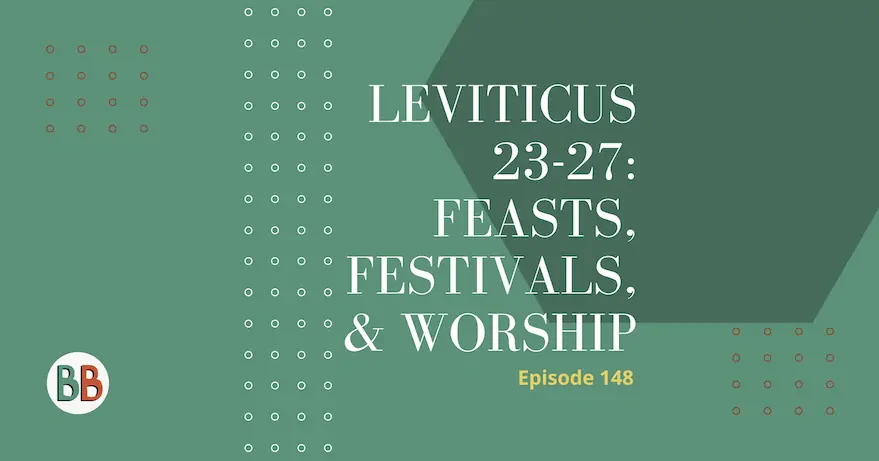
Welcome back to Ryan and Brian’s Bible Bistro! This week, we conclude our exploration of Leviticus. Join us as we discuss the rituals and assemblies that have influenced the worship practices of the Israelites and their connections to contemporary Christian celebrations. Our conversation highlights the role of rituals in providing stability, similar to how home comforts us over time.
We also delve into the issues of the Sabbath and Jesus’ authority, revealing the deep implications of Jesus’ actions and teachings on rest and worship. Our discussion extends to the story of the Passover and the Feast of Unleavened Bread, examining the history, tradition, and theology that enrich our appreciation of the Lord’s Supper and Christ’s sacrifice. This segment promises to enhance your understanding of the links between Old and New Testament teachings and the ongoing celebration of Passover in Christian life.
Finally, we examine the details of the Leviticus law, the Sabbath and Jubilee years, and the lessons they offer for today. From the tale of the blasphemer to the concept of the Jubilee, we consider the compassionate nature of God and the societal impact of these laws. Our study of Leviticus wraps up with a reflection on how the book sheds light on God’s nature, sacrifice, priesthood, and the call to holiness. Join us for this enlightening episode that connects ancient texts with our modern faith.
(00:11) Exploring Rituals and Sacred Assemblies
Leviticus concludes with a focus on yearly festivals, sacred assemblies, and the grounding effect of weekly gatherings for Christians.
(07:44) The Sabbath and Jesus’ Authority
Sabbath is a day for humankind, not inactivity, and Jesus’ actions challenged legalistic interpretations.
(14:24) Passover and Feast of Unleavened Bread
Passover and Feast of Unleavened Bread’s significance, Pharisees’ zeal for the law, Jesus as ultimate Passover lamb, and Christian celebration through Lord’s Supper.
(26:39) Festivals and Regulations in Leviticus
The Day of Atonement and Feast of Tabernacles connect atonement, deprivation, thanksgiving, and trust in God’s provisions.
(37:31) Interpreting the Leviticus Law With Care
Leviticus story of a stoned blasphemer with mixed heritage, emphasizing worship of Yahweh and community’s role in upholding reverence.
(47:20) Sabbath, Jubilee, and God’s Rest
Sabbath years and Jubilee teach rest, reliance on God, and resetting societal inequalities for redemption.
(59:50) Learning From Leviticus
Nature’s significance in understanding God’s nature, practical lessons, reverence, sacrificial system, and historical context.